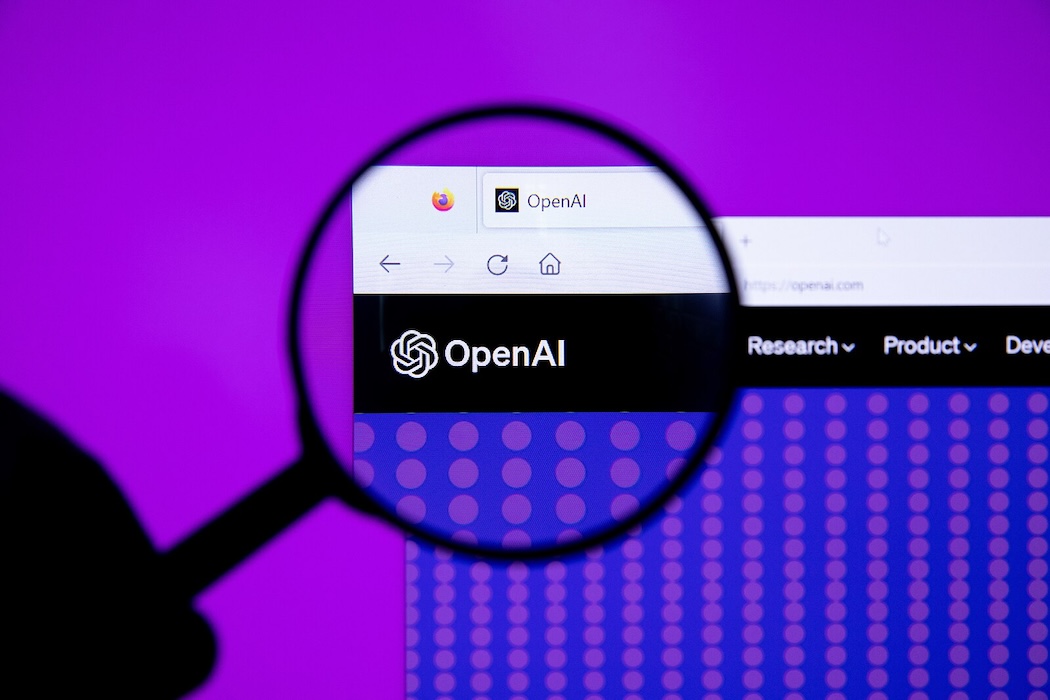The artificial intelligence giant claims its models were trained outside of Ontario, while publishers claim the content is Canadian.
As Canadian news publishers claim that OpenAI violated Canadian copyright law in its training of ChatGPT, the artificial intelligence (AI) company is arguing that the case should be heard in the United States (US).
Canadian News Group filed a lawsuit against OpenAI last November in an Ontario court, alleging that the AI giant used news content without permission to train GPT Large Language Models (LLMs) used in its popular chatbot. Publishers include Toronto Star parent company Torstar, Postmedia, The Globe and Mail, CBC/Radio-Canada and The Canadian Press.
“OpenAI’s use of other companies’ journalism for its own commercial gain is unacceptable. [fair]. This is illegal.”
Joint Statement by Canadian News Publishers
OpenAI is set to challenge the jurisdiction of the Ontario Superior Court of Justice in a hearing today, The Canadian Press reports. first reported. In the lawsuit, San Francisco-headquartered OpenAI argued that all of its business activities, including training AI models, took place outside of Ontario and should not be subject to the Canadian Copyright Act. OpenAI originally filed a notice of motion to dismiss or stay the proceedings in February.
“The most directly affected legal framework is U.S. copyright law,” the document states.
AI developers such as OpenAI rely on huge amounts of data, mostly taken from the open web, to train LLMs. Canadian news publishers claim OpenAI violated Canadian copyright law when it “brazenly appropriated[d]» their news content and used it to train associated ChatGPT models without consent.
“OpenAI’s public statements that using other companies’ intellectual property for its own commercial gain is in any way fair or in the public interest is incorrect,” the news publishers said in a joint statement. “OpenAI’s use of other companies’ journalism for its own commercial gain is unacceptable. [fair]. This is illegal.”
The group is seeking damages, profits made by OpenAI from the alleged infringement, and an injunction to prevent future use of its content. These damages could include up to $20,000 per allegedly infringed work, totaling more than 10 million works since 2015, according to the lawsuit.
According to OpenAI, the news publishers argued that the case involved issues of national sovereignty and the importance of journalism. OpenAI called for these “appeals to the senses” to be rejected as “distractions.”
CONNECTED: Major Canadian news organizations sue OpenAI for copyright infringement
OpenAI also said that some of the plaintiffs' case materials expanded the original claim to include not only the unauthorized use of content to train AI models, but also the output of the models. The company countered this separate lawsuit against Canadian developer LLM Coherefiled in New York by another group of publishers, alleging copyright infringement through the inference of artificial intelligence models as well as training.
OpenAI received a sealing order for certain documents related to the case in July, according to court documents. The information the company sought to protect from the public included descriptions of “business transactions, artificial intelligence systems, or processes for training models and inferences,” as well as organizational structure.
This is not the only lawsuit OpenAI is facing alleging copyright infringement, but it is the first of its kind in Canada. New York Times made similar allegations against OpenAI and its backer, Microsoft, which combined with a separate claim by US authors.
Other AI copyright cases have recently been resolved. anthropic entered into an agreement in a lawsuit brought by music publishers over song lyrics, and agreed to US$1.5 billion in damages. settlement with book authors. Thomson Reuters in Toronto won the case against now-defunct startup LegalTech Ross Intelligence in February, although the startup was upheld the appeal.
In 2023, Canada launched a public consultation to study the use of copyrighted works in training artificial intelligence systems, but has not yet enacted legislation. Previously Cohere, Google and Microsoft supporting OpenAI. asked the federal government for a legal exception to the Copyright Act that would allow them to use copyrighted material to train their models without paying or obtaining permission. Earlier this summer, AI Minister Evan Solomon said the federal government was waiting to hear copyright cases. play in court before making final decisions.
Artistic image courtesy of Wikimedia Commons.








